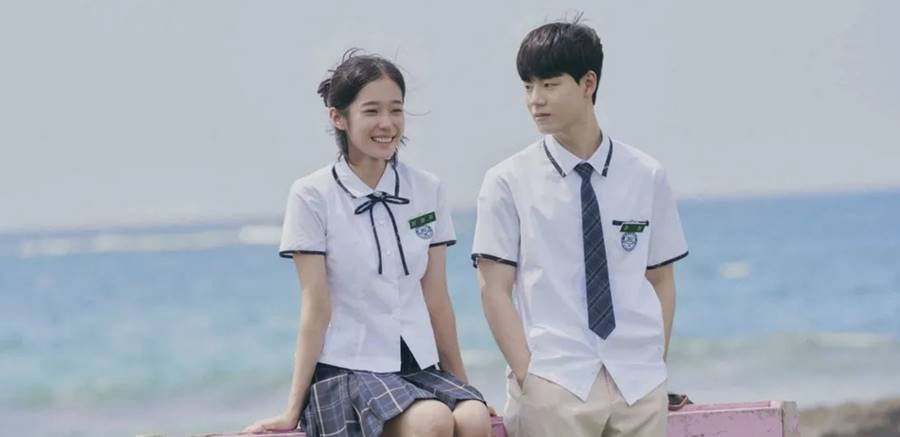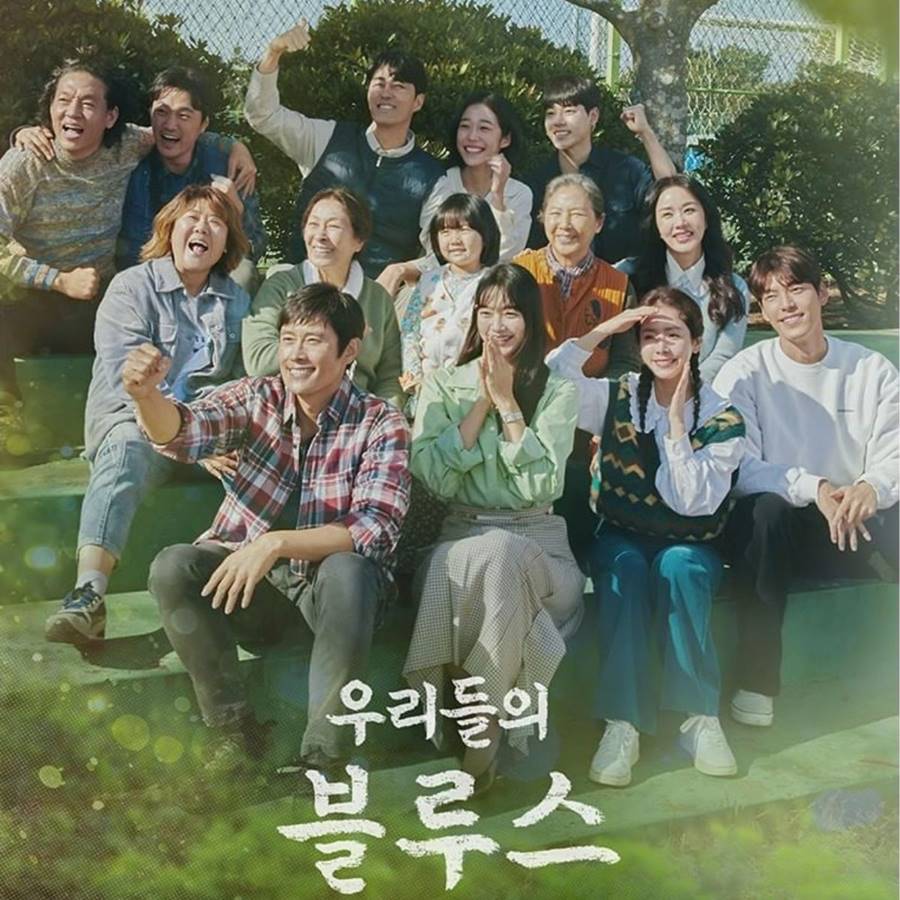
By Jae-Ha Kim
Teen Vogue
June 14, 2022
Our Blues, available on Netflix, is one of the best K-dramas in recent years. At first glance, the show appears to be about a somewhat eccentric community of folks in Jeju-do — South Korea’s largest island. And it is. But it’s also about so much more. Over the course of 20 episodes, the series weaves together the complex stories of more than a dozen characters, creating a larger picture of love, forgiveness, and what it means to truly look out for one another.
I can think of quite a few Korean dramas that have meted out storylines dealing with child abuse, debts, teen pregnancy, savage bullying, prejudice against the disabled, and death by suicide. But I don’t recall any other show that introduced all of those topics and resolved them in any meaningful way. Our Blues does that. While it starts off slowly, the pacing is part of the point: resolutions don’t occur immediately, but there is a sense of cathartic release when they do.
Eun-hee (Parasite’s Lee Jung-eun) is a leader in the community, and her business sense has helped her become wealthy enough to support her younger siblings. Her close-knit group includes her childhood friends Ho-sik (Choi Young-joon) – who lives with his daughter Yeong-joo (Roh Yoon-seo) – and In-kwon (Park Ji-hwan), a former gangster turned food stall owner who’s busy raising his son Jung-hyun (Bae Hyun-sung). Once good friends, the fathers despise each other for reasons that will slowly be revealed. And neither is happy when they find out that Yeong-joo – the no. 1 student at school – has become pregnant by her no. 2 classmate: Jung-hyun. As the men pressure the two to abort the pregnancy, the teenagers take an unwavering stance. There are some ugly segments where In-kwon beats his son for defying him. But Ho-sik and In-kwon have to make a decision: continue to treat their children as human trophies or allow them to make their own life choices.

Meanwhile, the lack of societal approval prevents Young-ok (Han Ji-min) from telling anyone about her personal life, which includes a twin who has Down Syndrome. Orphaned at a young age and unwanted by extended family, Young-ok eventually moved Young-hee (portrayed by artist Jung Eun-hye, who has the genetic disorder in real life) into a care facility. She feels relief not having to care for her sister, but also is burdened with guilt because Young-hee tells her repeatedly she wants to live with her. Kudos to scriptwriter Noh Hee-kyung who created a fully developed character rather than a caricature. Young-hee longs for romance like the kind her sister has with Jeong-joon (Kim Woo-bin). She wants to be beautiful like her sister. She’s a talented artist capable of doing many things. And she’s very aware when she’s being mocked. When a mother begrudgingly scolds her young child for being rude to a disabled woman, Young-hee later tells the boy that he shouldn’t speak that way to any adult.
The most complicated storyline is one that is hinted at from the beginning – the fractured relationship between Dong-seok (Squid Game’s Front Man, Lee Byung-hun) and his estranged mother Ok-dong (Kim Hye-ja), a widowed haenyeo whose daughter died freediving. Ok-dong is gentle and doted on by the villagers, who can’t understand why Dong-seok wants nothing to do with her. He is the problem. He lacks respect. He should apologize to her. But as their backstory is revealed, it includes a history of poverty, child abuse, and most likely mental illness.
There is a poignant subplot centering on a pre-school child sent from Seoul to Jeju to stay with her grandmother while her father is hospitalized. A remarkable actress at just five years old, Ki So-you conveys all the right emotions as Eun-gi, who refuses to believe her father won’t recover. As her mother and grandmother prepare for death, the little girl prays for life. (In a clever bit of casting, Eun-gi’s grandmother and father are played by real life mother and son Go Doo-shim and Kim Jung-hwan, respectively.)
Our Blues is also notable for its soundtrack, which includes “With You” – the evocative collaboration between BTS member Jimin and Ha Sung-woon. Repeated throughout the series at exactly the right moments, the lyrics initially appeared to reflect on a complex love story between Dong-seok and Seon-a (Shin Min-a). But the first lines of the song were a clue about one of the most gut wrenching storylines to come. I held in my tears for most of the finale. But the juxtaposition of images of a grief-stricken son and Jimin’s voice gently singing “I wanna be with you/And I wanna stay with you/Just like the stars shining bright” opened the floodgates.
Unlike many K-dramas where the endings are lacking, the finale is satisfying. After all the suffering, there is a sense that everything would be OK. After all, “The living must keep living,” as one of the characters says.
Of his time filming the K-drama, Lee Byung-hun told me last month, “I experienced touching emotions and found hope ever since I read the script for Our Blues. I hope this drama will be able to ‘comfort all wounded souls,’ as the scriptwriter once said.”
Mission accomplished.
Airdates: Twenty hour-long episodes aired on tvN April 9 to June 12, 2022.
© 2022 JAE-HA KIM | All Rights Reserved






Best kdrama